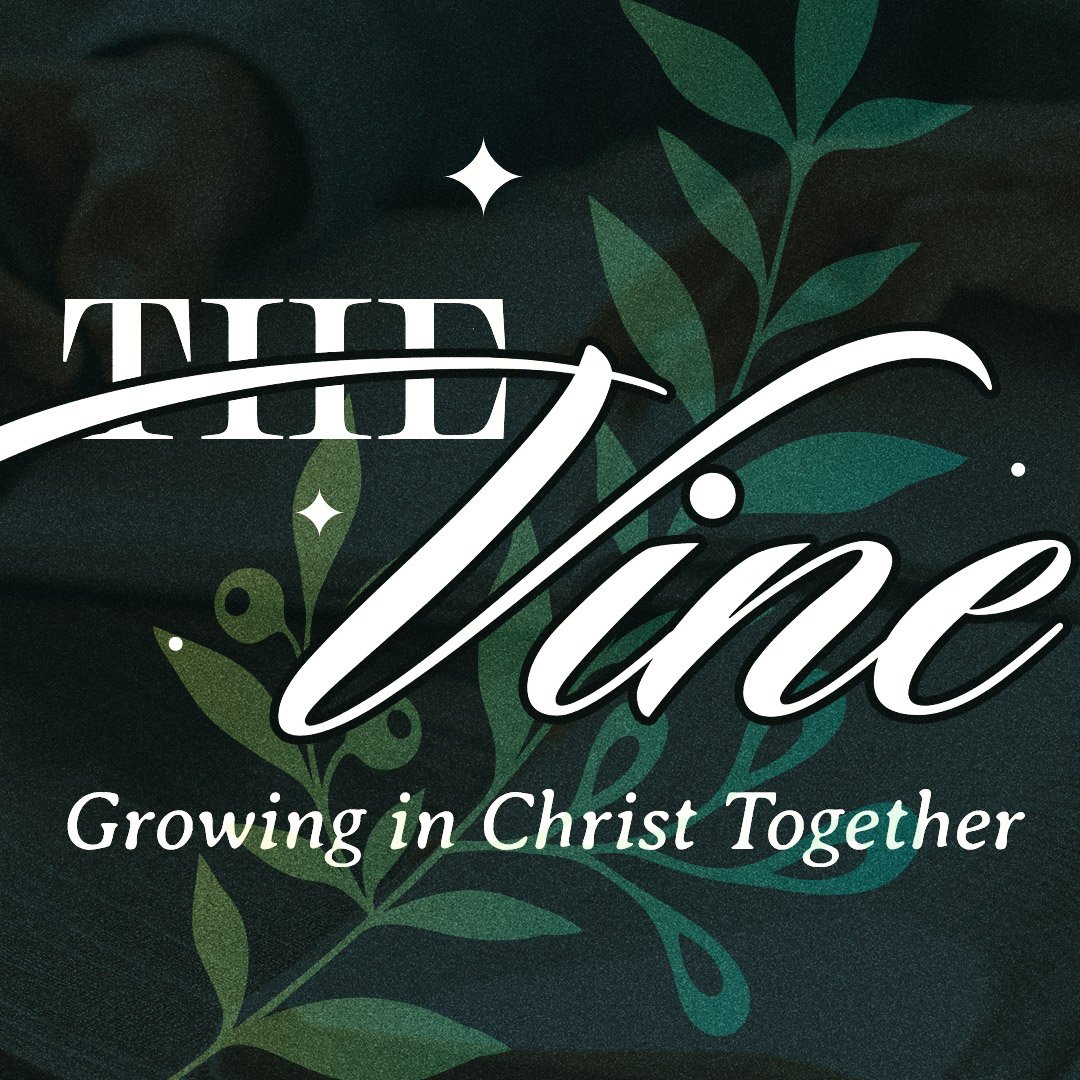The Vine: July 15, 2024
“Abide in me as I abide in you. Just as the branch cannot bear fruit by itself unless it abides in the vine, neither can you unless you abide in me. I am the Vine, you are the branches. Those who abide in me and I in them bear much fruit, because apart from me you can do nothing”
This is a weekly reflection on the previous week’s sermon text. Each week there will be a devotional related to the scripture for the week, along with questions for reflection/discussion, as well as prayer. Feel free to make this a part of your individual spiritual growth throughout the week or utilize in small group settings (growth groups, Sunday school, etc.)
“1 Have mercy on me, O God, according to your unfailing love; according to your great compassion blot out my transgressions.
2 Wash away all my iniquity and cleanse me from my sin.
3 For I know my transgressions, and my sin is always before me.
4 Against you, you only, have I sinned and done what is evil in your sight; so you are right in your verdict and justified when you judge.
5 Surely I was sinful at birth, sinful from the time my mother conceived me.
6 Yet you desired faithfulness even in the womb; you taught me wisdom in that secret place.
7 Cleanse me with hyssop, and I will be clean; wash me, and I will be whiter than snow.
8 Let me hear joy and gladness; let the bones you have crushed rejoice.
9 Hide your face from my sins and blot out all my iniquity.
10 Create in me a pure heart, O God, and renew a steadfast spirit within me.
11 Do not cast me from your presence or take your Holy Spirit from me.
12 Restore to me the joy of your salvation and grant me a willing spirit, to sustain me.
13 Then I will teach transgressors your ways, so that sinners will turn back to you.
14 Deliver me from the guilt of bloodshed, O God, you who are God my Savior, and my tongue will sing of your righteousness.
15 Open my lips, Lord, and my mouth will declare your praise.
16 You do not delight in sacrifice, or I would bring it; you do not take pleasure in burnt offerings.
17 My sacrifice, O God, is[b] a broken spirit; a broken and contrite heart you, God, will not despise.
18 May it please you to prosper Zion, to build up the walls of Jerusalem.
19 Then you will delight in the sacrifices of the righteous, in burnt offerings offered whole; then bulls will be offered on your altar.”
Psalm 51 has traditionally been attributed to King David. To properly understand this psalm in its context, it would be helpful to read 2 Samuel chapters 11 and 12. Needless to say, it is a sorted, disturbing story involving adultery and murder. Psalm 51 is David’s response for being held accountable for his actions.
It is clear from the beginning that David accepted full responsibility and confessed his sin to God, while at the same time recognizing the loving, grace-filled, forgiving nature of God. Later in the psalm he said, “Create in me a pure heart, O God, and renew a steadfast spirit within me…restore to me the joy of your salvation and grant me a willing spirit, to sustain me…then I will teach transgressors your ways so that sinners will turn back to you.” It’s significant to note that not only did David confess his sin, but that he realized only God could create a pure heart within him and restore the joy of his salvation. The pattern is simple – confess sin, repent, receive God’s grace and forgiveness, and then help others do the same who are consumed in a life of sin.
While the pattern might seem simple enough on paper, we know that in actual practice in real life it is difficult. Confessing our sin does not come easy for most of us. It is a humbling experience to admit where we fall short, and even more humbling to ask for God’s forgiveness and help in turning our lives around. Yet when we reach that point, we finally come to internalize and accept the message of God’s grace.
In my ministry I have had the privilege of getting to know many different people, and as you can imagine, I have encountered some great people. Some of the most graceful, forgiving people that I have known had a rough past. In one way or another, they have literally been to hell and back, and it was the sheer grace of God that delivered them and then enabled them to be great witnesses to the power of forgiveness. There are many lessons from Psalm 51, but one that sticks out for me is the example of being vulnerable with God and realizing that restoration and salvation come from God.
I like Ann Lamott’s book entitled, “Help, Thanks, Wow!” In the book she wrote about how the words “help, thanks, and wow” are three great prayers. “Help!” might be the most honest prayer we can pray, and when we pray it sincerely, we are well on our way to being whole again. In reflecting on hitting “rock bottom”, Lamott wrote:
“There’s freedom in hitting rock bottom, in seeing that you won’t be able to save or rescue your daughter, her spouse, his parents, or your career, relief in admitting you’ve reached the place of great unknowing. This is where restoration can begin, because when you’re still in the state of trying to fix the unfixable, everything bad is engaged: the chatter of your mind, the tension of your physiology, all the trunks and wheel-ons you carry from the past. It’s exhausting. Help. Help us walk through this. Help us come through. It is the first great prayer.”
Questions for Reflection:
How does knowing the background of this psalm affect your understanding of the message?
The Greek word for repent is “metanoia” – to change one’s mind. When was the last time you changed your mind on something significant and what difference did it make? Why are we so reluctant to change our minds or seek a new direction?
It’s easier to point the finger at others than to deal with our own sin. How do you fight the temptation of judging others, and instead, hold yourself accountable to what Christ has called you to be? Who has held you accountable in your life? What did you learn from the experience?
What does Psalm 51 reveal about God’s character? How can we apply the understanding of God’s mercy in our lives?
Why is it important to not just seek forgiveness but also transformation? How has your renewed life in Christ made a difference in how you help and love others?
prayer
“Help. Amen.”
PREVIOUS WEEKS
To view all previous devotions go to https://fumc-rr.org/the-vine




